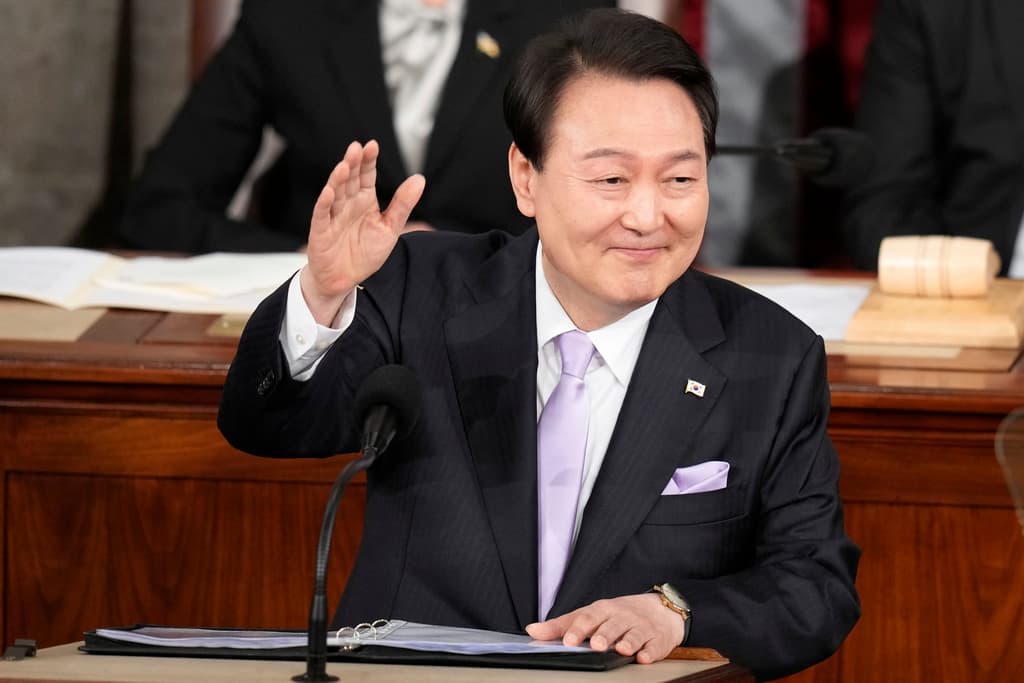South Korean Leader Trumpets Washington Summit as Start of New Era
Yet judging by the response from North Korea, it would be premature to expect real change in the state of play between the two Koreas.

South Korea’s president, Yoon Suk-yeol, sees his visit to Washington as the triumphant beginning of a brave new era in the confrontation with North Korea.
Please check your email.
A verification code has been sent to
Didn't get a code? Click to resend.
To continue reading, please select:
Enter your email to read for FREE
Get 1 FREE article
Join the Sun for a PENNY A DAY
$0.01/day for 60 days
Cancel anytime
100% ad free experience
Unlimited article and commenting access
Full annual dues ($120) billed after 60 days

